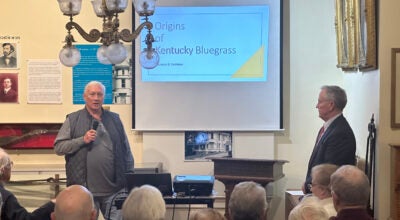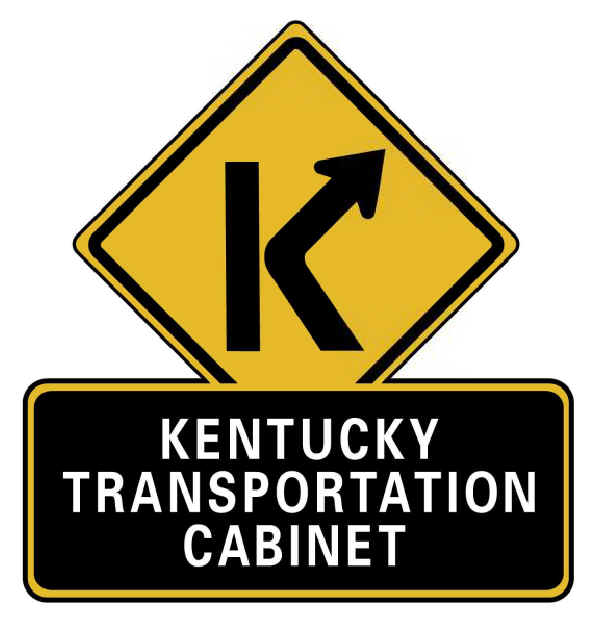Bill’s failure leaves city, county scrambling
Published 10:46 am Monday, March 26, 2018
This session of the Kentucky General Assembly has been dominated by one topic: pension reform.
With only days to go in the regular session, it doesn’t appear anything will be passed to alter the situation. Kentucky’s pension system, as a whole, is facing an estimated $43 billion shortfall.
While Kentucky’s teachers have been the most vocal and often the target of Gov. Matt Bevin’s statements, the situation will affect all city, county and state workers who participate in the state’s pension system.
Senate Bill 1 is the main pension reform bill. Senate Bill 66 is closely aligned, and would allow employers to phase in greatly increased contributions for their employees’ retirement. With both bills appearing unlikely to pass in the few remaining days of the session, cities and counties are looking at massive increases to its pension contributions from hundreds of thousands of dollars to millions of dollars for pensions.
With budgets being formed for the new fiscal year, it will be a difficult pill to swallow for cities, counties and school districts across the state. Local governmental entities say they should be able to weather the first year, maybe two, before their reserves run out.
Employer contributions for non-hazardous and hazardous duty retirement will also rocket higher, to 28 percent and 47.86 percent of the employee’s gross salary, respectively.
With tax revenue options limited by statute, the situation can be a budget killer.
The bill
Senate Bill 1 has garnered many headlines and much angst, particularly from teachers, to reform the state’s ailing pension system. The bill would call for widespread changes to the Kentucky Teachers Retirement System, which is one of the most underfunded among the state’s pension programs. Gov. Matt Bevin recommended a raft of changes,for teacher retirement while fully funding the state’s contributions to the program, which has not happened for many years.
SB 66 would allow universities, community colleges and health departments to withdraw from the Kentucky Employees Retirement System and governments to pull out of the County Employees Retirement System by July 1. Each entity would have to pay a prorated share of the unfunded liability based on the employer’s total payroll for fiscal years 2015 through 2017.
Employers’ contributions to the programs would increase by 28.05 percent for most employees and 47.86 percent for those, like police officers and firefighters, who qualify for hazardous duty retirement.Those payments would likely increase over time
The bill would allow that amount to be paid off interest-free for up to 40 years, with a 5 percent increase each year.
It also caps the contribution increase to 12 percent per year through the end of fiscal year 2028. As things stand, the increased annual payments would begin with the coming fiscal year.
Background
State Sen. Ralph Alvarado (R-Winchester) said the two bills are separate and SB 66 would actually cost the state more money, if it was implemented on its own. Alvarado compared it to paying on a loan. SB 1 would increase payments to the principal and SB 66 would lower the interest while deferring some of the interest.
SB 66 would continue what’s happened in the past, he said, where debt accumulates faster than it is paid off.
“By itself, (SB 66) is not a good idea,” Alvarado said. “That’s what has gotten us in this mess.”
Alvarado said he sympathizes with the struggle for governmental entities, but there aren’t other options at this point.
“I understand the hardship here … We’re trying to find a way around this and we’re trying to find a way to pay down the principal,” he said.
Long time coming
Winchester Mayor Ed Burtner and Clark County Judge-Executive Henry Branham have warned this situation was looming for months. With the legislative session ending and no help in sight, big annual payments will have to be made. To accommodate the payments, there will likely have to be significant and serious cuts to employees or services.
In January, Kentucky League of Cities Director of Governmental Affairs Bryanna Carroll said the situation could be traumatic without payments being phased in.
“These massive increases could be devastating to local governments, and their already cash-strapped budgets,” she said in an article published by KLC. “It could also, ultimately, hurt the stability of the entire system. A phase-in of the rates would go a long way toward preventing a catastrophic effect that local communities may not be able to easily recover from.”
In a column submitted earlier this month, Alvarado cited the amounts of these payments from a state budget report. Clark County would have to pay $600,000 over the next two fiscal years. Clark County Public Schools would have to come up with $612,000. The City of Winchester, though, must find $1.163 million for its share.
Officials with all three say its not fair, as they have made their payments and the CERS is 60-percent funded.
Clark County
“We’ve been crunching numbers,” Branham said. “We’ve been doing it for several months now.”
As the fiscal court held its first budget workshop meeting this week, Branham said he was advised by the Department of Local Government to budget for the worst case: that the county will have to pay the full $600,000 from the next budget.
Branham said the county could survive for the next fiscal year by using the county’s cash reserves to pay its share.
“That’s what it will clean out,” Branham said. “That’ll float this year but it won’t for the 2020 budget. We’ve already made that calculation.”
Solutions aren’t any easier to come by.
“Then you look at cutting services, raising taxes or a combination of both,” Branham said. “There are only certain ways we can raise taxes.”
Property tax rates are capped at a 4 percent increase annually. Insurance premium tax increases must be set a year in advance, he said.
“When we cut, it will be bare bones cutting,” he said. “We got rid of a lot of our fluff in 2004 and 2005.It’s going to be a great challenge.”
Branham, who is a member of the county board of health, said Friday he got a message from the Clark County Health Department saying the bill’s impact could be $773,000 between increased pension payments and cuts to state funding.
Winchester
For City Manager Matt Belcher, the question is one of balance.
“How do you balance retaining your employees and attracting new ones? That’s the challenge governments will face,” he said. “How do you prioritize and meet needs of the public and ensure your employees can fund their pension?”
Factor in providing services to taxpayers and it becomes a real juggling act.
The city is budgeting for the expected $1.163 million in additional contributions for its employees for the new fiscal year. Like the county, budget discussions are already under way.
“We’re budgeting for the worst,” Belcher said. “We’re going to look at our requests a lot more critically and capital expenses a lot more critically.
There is some frustration that cities and counties will be paying to fix a situation they did not create.”
“If nothing is done by the General Assembly, this will have very serious consequences to the city’s finances,” Burtner said. “We have been talking about this for well over a year.”
Burtner said CERS is presently about 60 percent funded. The goal for being fully funded, he said, is actually around 80 percent.
“Cities and counties have been making the required contributions every year,” he said.
Burtner is concerned local governments and quasi-governmental entities will be used to help pay off the $43 billion deficit for the teachers’ system. Municipalities already paid, in Winchester’s case $1.5 million over 15 years, to create the employees system in the 1980s, he said.
“So here we are essentially (paying) this twice,” he said.
“All we’re asking for is some relief. If we could phase them in over five years or some period of time… we will have better experience to see if the changes will work.”
Without the relief of SB 66, the situation could be grim.
“Services would have to be reduced or eliminated,” Burtner said.
“We have some reserves,” Belcher said. “We may be able to absorb it this year and possibly next year. For some cities, it’s disastrous.”
Clark County Public Schools
The employee retirement is only a small part of the potential cuts the school district could be facing. Clark County Public Schools Superintendent Paul Christy said the district could stand to lose $2.6 million in revenue depending on other budget cuts.
Losing the phase-in from SB 66 would mean the district would have to come up with $612,000.
“When you lose that kind of money, you’re losing people,” he said. “The worst is, ultimately, it affects student learning.”
The district’s budget has already incorporated the maximum of those potential cuts, he said. In the short term, the district can weather the storm by using its $14 million in contingency funds.
“Fortunately, we’re financially able to handle that at this point in time,” he said. “But at the end of two years, we’d still have a district that’s solvent. We can take a hit like this (but) we can’t sustain it for long.”
Christy said he believes Clark County is one of maybe a dozen Kentucky school districts that could survive financially, at least immediately. Fifty to 60 school districts across the state could be financially insolvent by the end of the 2018-19 school year, he said.
“We have to be that much more vigilant on what we spend,” he said.
The other side of the issue facing school districts is the effect of the pension crisis on both current and future teachers. Christy said he recently spoke with officials at Eastern Kentucky and Morehead State universities and was told the education programs are down about 50 percent.
“The thing of grave concern to me is how are we going to draw good people to the profession when we’re under attack?” Christy said. “We’re struggling to attract and keep good teachers now.”
Solutions
Belcher said he believes the solution, meaning creating new revenue, needs to come from the state and through tax reform.
“It’s troubling and concerning for sure that elected officials have failed to put a measure together to enact something,” he said. “In my opinion, you can’t have true pension reform without a revenue stream. To think you’ll save (the pension system) by cutting and putting it on the backs of current employees … is doomed to fail.”
Local governments and taxing districts have limited abilities to raise tax revenue themselves. Property tax rates are capped at a 4 percent increase each year, though compensating rates are offered to generate the same amount of revenue. Any taxes above 4 percent would be subject to a recall vote by constituents.
“At the current rate, there would only be 12 to 15 districts left solvent at the end of the biennium,” Christy said. “We can’t tax our way into solvency.”
Alvarado said deferring payments, or phasing them in over time, doesn’t seem to be a good move for the state as a whole.
“It’s not a wise move by itself,” he said. “It’s going to have a lot of bad ramifications.”







